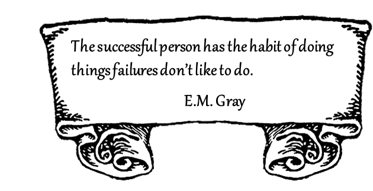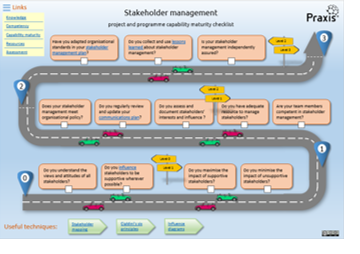Whether you are a project manager, sponsor or anyone else involved in a project you want your projects to succeed. We generally accept that in order to make success a habit, we need to be organisationally mature in the discipline of project management.
So, the logic says, you need to develop a mature organisational culture to improve the chances of projects habitually succeeding. If we accept Peter Drucker’s observation that “if you can’t measure it, you can’t improve it” then clearly we can’t improve our organisational maturity (and therefore our project success rates) if we have no means of measuring it.
This is where the idea of capability maturity models comes in. Their origin goes back to 1989 when the first frameworks were focused on software development. Since then, there has been an explosion of open and proprietary models for all aspects of management – and project management is no exception.
As always seems to be the case with fundamentally simple ideas, they seem to get more and more complicated as time goes on and ‘better’ models evolve. As they get more complicated, they also get further and further away from the original principles, if not losing touch with them altogether. Well known project management models such as P3M3 and OPM3® are good examples.
These days, a formal capability maturity assessment is a big deal. You will probably pay a lot of money to use a model that assesses a sample of your projects and programmes at a point in time. You then have to implement an improvement programme before going through the same assessment 12 months down the line to find out if things have got any better.
I believe there is an alternative. For me the simple logic goes like this:
-
 Surveys and lessons learned reports consistently show that projects fail because people don’t do the simple things well.
Surveys and lessons learned reports consistently show that projects fail because people don’t do the simple things well. -
Conversely, post project reviews of successful projects regularly demonstrate that success was mainly due to people doing the simple things well.
-
The World Health Organisation identified a similar problem in surgery around the world and improved mortality rates by 47% by introducing simple checklists1
-
If projects introduced checklists, it would develop the right habits and ensure the simple things were done as a matter of course.
-
The attributes in a good capability maturity model make ideal items for inclusion in checklists.
-
By implementing capability maturity based checklists you develop the maturity of the organisation and simultaneously embed the right habits – no need for the big bang assessment.
-
Getting, managers, sponsors and stakeholders involved in the checklist process means that they all gain a better mutual understanding of what makes projects succeed. This helps new behaviours become embedded in the organisation. Good practice becomes routine.
How can we do this? I think we can borrow two more ideas from other walks of management.
Firstly, like ISO9000, we accept that every organisation is different will need to focus on the sub-set of project management processes and functions that are applicable to their environment. Choose you checklists carefully, this is definitely not a one-size-fits-all situation.
Secondly, projects should be assessed like competence is assessed in people. Through a 360o assessment that involves the management team, sponsor and stakeholders.
Now maybe this is starting to sound like a big job, which is what we’re trying to get away from. It’s not. Simple on-line checklists can take just a few minutes to complete and each contributor does them at their own convenience.
 Results are consolidated and you can quickly see if opinions differ about how well a project is implementing the simple basics of project management.
Results are consolidated and you can quickly see if opinions differ about how well a project is implementing the simple basics of project management.
Resolving any differences of opinion brings people together to reach a mutual understanding and creates the sort of mature organisation with the right habits becoming routine.
If people can get into the habit of quickly going through a checklist it can become a 'keystone habit'2.
The keystone habit leads on to other habits such as doing the basics of project management well, even when they seem tiresome and unrewarding. But every habit needs a reward. In this case, it's seeing the maturity of the project improve on a week by week basis as everyone in the extended team pulls together.
For me the logic is undeniable but I’d be interested to hear what others think. To find out more about the checklists and 360o assessment tool in Praxis Framework that enables you to do all this, click here. Just like everything else in Praxis it’s completely free.
- The Checklist Manifesto, Atul Gawande, 2010, Profile Books Ltd., London
- The Power of Habit, Charles Duhigg, 2013, Random House Books, London





